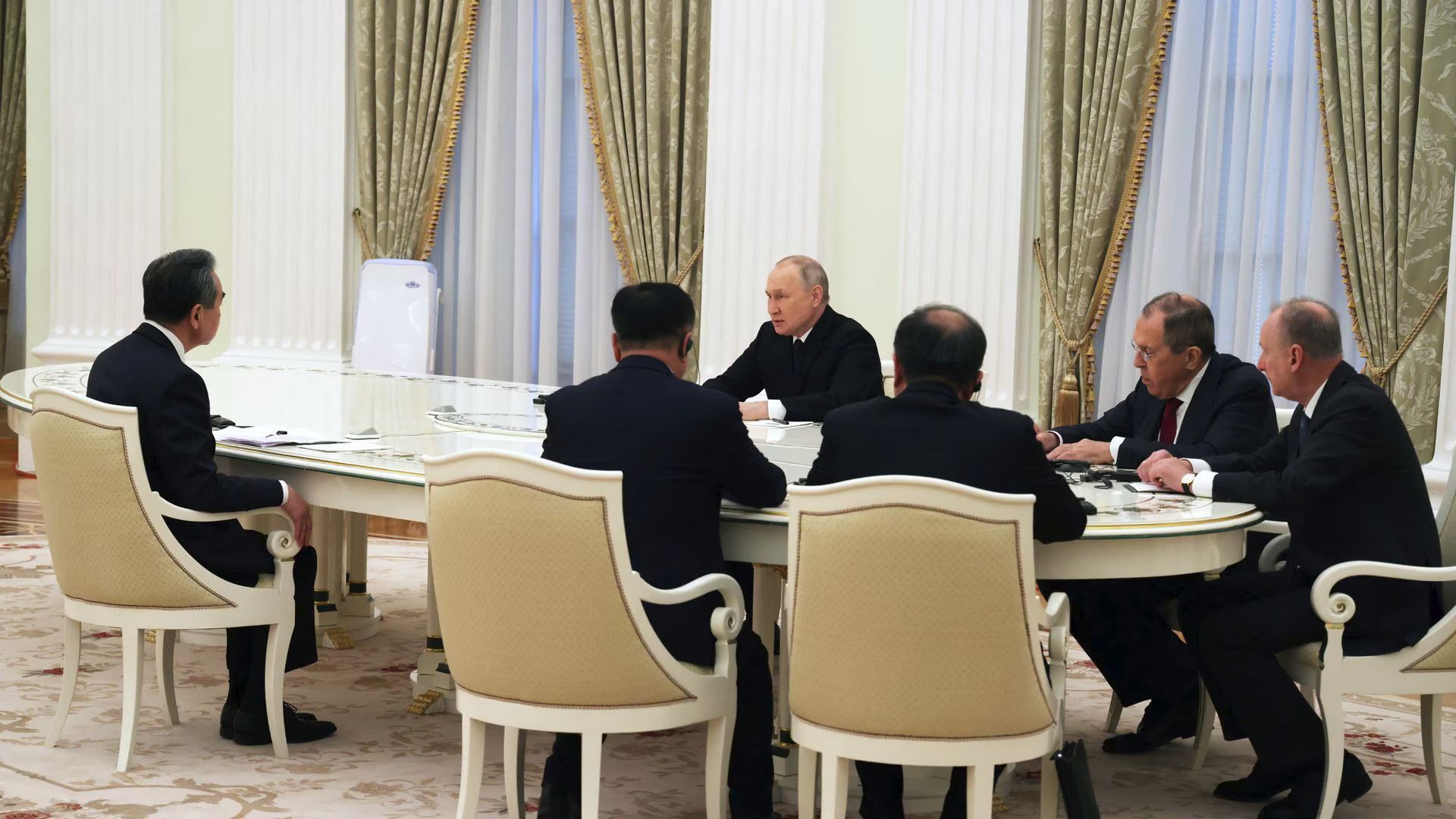Moscow - Russia's President Vladimir Putin announced plans to strengthen Russia's nuclear forces, as tensions between Russia and Ukraine continue to escalate. In a recent address to mark the Defender of the Fatherland public holiday, Putin stated that Russia will pay increased attention to strengthening the nuclear triad, referring to nuclear missiles based on land, sea, and in the air.
The announcement follows Putin's suspension of a bilateral nuclear arms control treaty with the United States, which has raised concerns about a potential nuclear arms race between the two countries.
"As before, we will pay increased attention to strengthening the nuclear triad," said Putin, referring to nuclear missiles based on land, sea and in the air.
Putin's remarks also included details about the deployment of new weapons systems, such as the Sarmat intercontinental ballistic missile, which is capable of carrying multiple nuclear warheads.
Additionally, Putin stated that Russia will continue to produce air-based hypersonic Kinzhal systems and begin mass supplies of sea-based Zircon hypersonic missiles. The deployment of these advanced weapons systems is likely to further escalate tensions between Russia and the West, as Russia seeks to assert itself as a major global power.
Meanwhile, tensions remain high in the ongoing conflict between Russia and Ukraine, which began with Russia's invasion of Ukraine one year ago. In recent weeks, the situation in Ukraine has escalated, with Russian-backed separatists launching a new offensive in the country's east and Ukraine accusing Russia of amassing troops near its border.
The international community has expressed concern about the escalating conflict and urged both sides to seek a peaceful resolution. The United States and its allies have imposed sanctions on Russia in response to its actions in Ukraine, and NATO has increased its military presence in the region.
Russia has denied involvement in the conflict, but evidence suggests that Russia has provided military support to the separatists in eastern Ukraine. The conflict has resulted in the deaths of over 10,000 people and displaced over 1.5 million people.
The escalation of tensions between Russia and the West has also raised concerns about the potential for a larger conflict. The United States and its allies have stated their commitment to supporting Ukraine and deterring Russian aggression, while Russia has accused the West of interfering in its affairs and threatening its security.
In response to the escalating conflict, Ukraine has called on the international community to take action to support its sovereignty and territorial integrity. The United States and its allies have pledged their support for Ukraine and called on Russia to de-escalate the situation.
Chinese role
Russian President Vladimir Putin welcomed China's top diplomat, Wang Yi, to the Kremlin on Wednesday, announcing that Chinese leader Xi Jinping would soon visit Russia. Putin declared that the relationship between China and Russia had reached "new frontiers," and Wang stated that China would play a constructive role in the political settlement of the Ukrainian crisis.

Image - Reuters
While Ukraine has declared that there can be no talk of peace while Russian troops occupy its territory, Xi is expected to deliver a "peace speech" on Friday. The United States has expressed concern that China may provide material support for Russia's war in Ukraine.
In recent weeks, Russia launched an offensive in eastern Ukraine, but Ukrainian forces have repelled 90 Russian attacks in the northeast and east over the past 24 hours. Despite some heavy losses, Russian troops are concentrating their offensive efforts in several areas, including Kupiansk in the Kharkiv region and around Lyman, Bakhmut, Adviika, and Shakhtarsk in the Donetsk region.
Ukrainian military analysts suggest that Russia's strategy is to push in one place, fail to advance, and then bring in reserves to try in another place, all in an effort to weaken Ukraine's position.